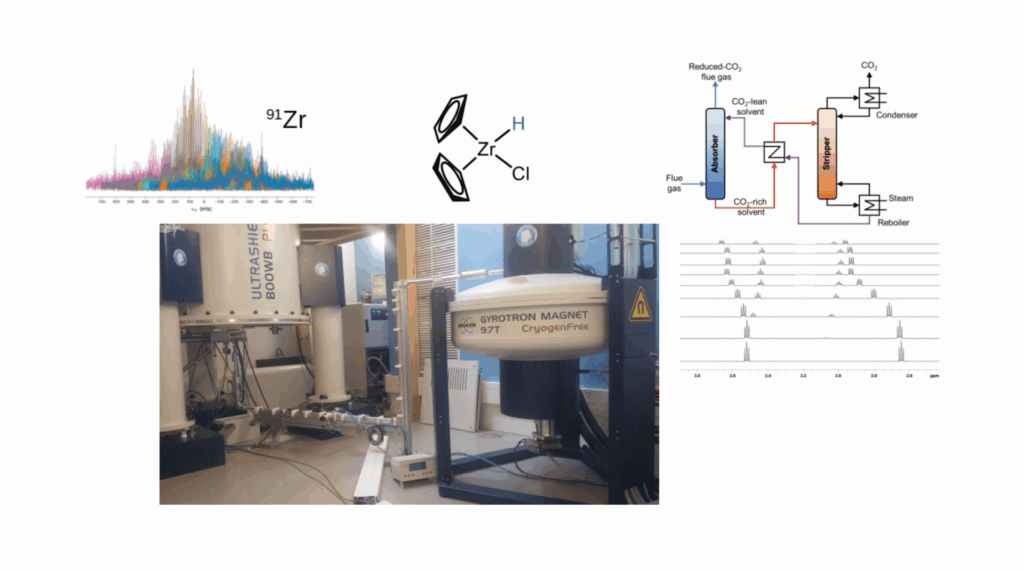Boosting high-resolution NMR
Boosting high-resolution NMR of high- and low gamma nuclei in with dynamic nuclear polarization, for innovative materials and CO2 capture
The development of new materials and chemical processes to store and transport energy from renewable sources, or capture and valorize CO2, requires access to instruments at the highest standards. NMR spectroscopy is unique in its ability to probe matter at atomic resolution both in liquids and solids, over a broad range of temperatures. In this project, we will upgrade an existing 800 MHz magnet and extend its capabilities to investigate CO2 capture, valorization of biomass and energy storage. Carbon capture and storage represent a major avenue for the control of the emissions of CO2. CO2 absorption by amine solutions is a well established and effective approach. However, the prohibitive energy cost of the amine regeneration process remains a major limitation. New catalysts are necessary to make this efficient enough to be scalable. We will also support the development of catalysts for the deoxygenation of plastics and biomass. Finally, the characterization of metal-based compounds used in batteries and in catalysis are of great importance, in the perspective of innovative materials design, in particular in relation with batteries, or hydrogasification catalysts. Low sensitivity nuclei are central to all the systems listed above and will require the use of a very high field NMR spectrometer. The characterization of these nuclei by NMR will benefit from the instrumentation we are building for the 800 MHz spectrometer, such as a very low temperature (10 K) NMR probe for solid-state NMR spectroscopy of quadrupolar nuclei in static conditions.


